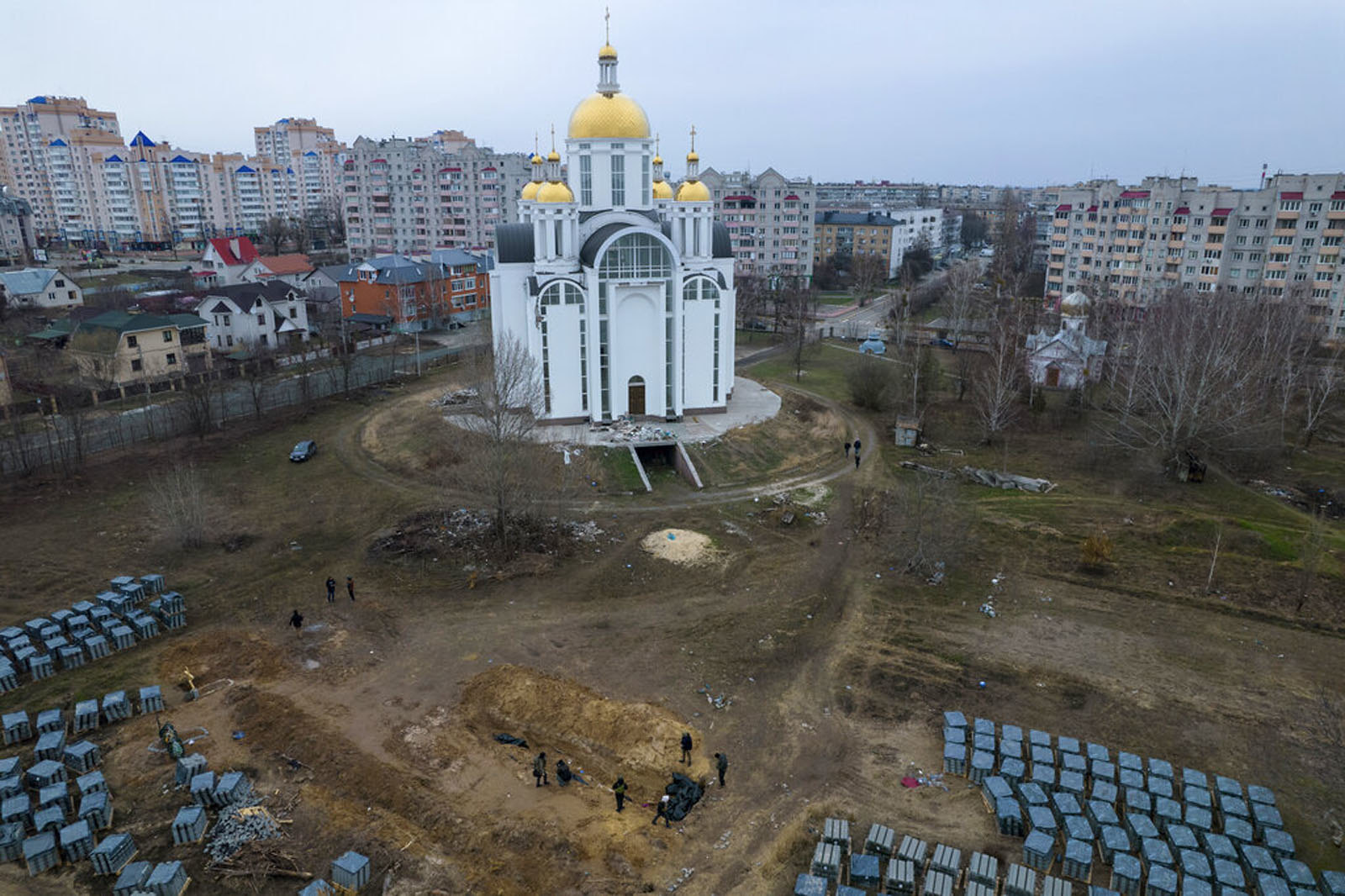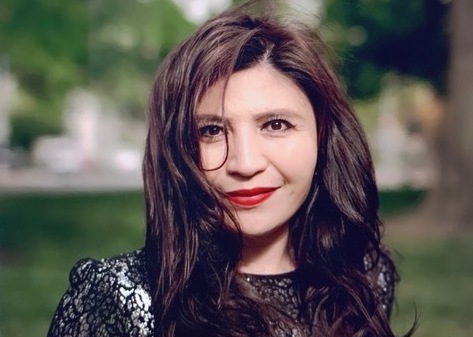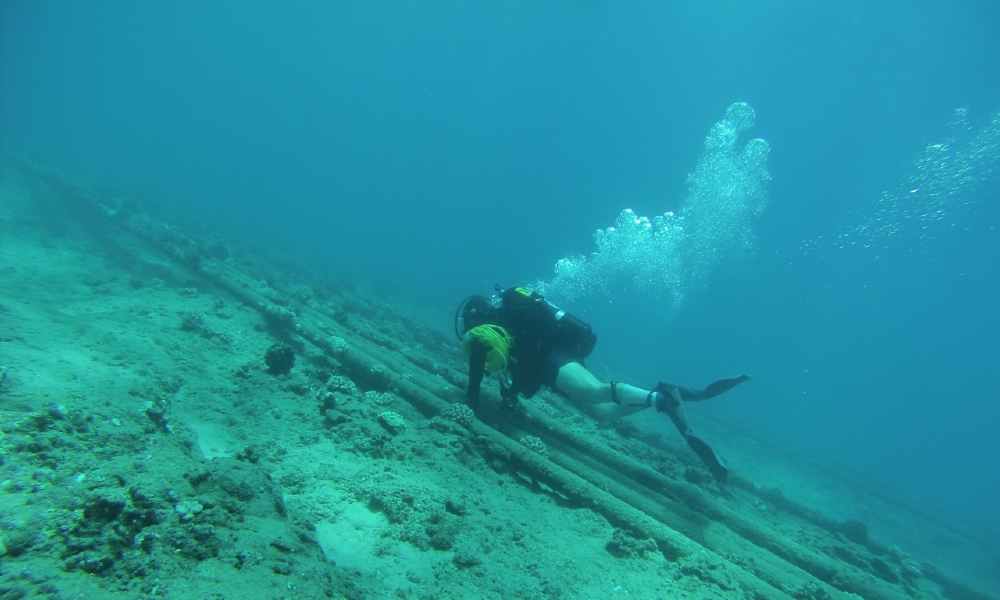When Do We Call Russia’s Atrocities a Genocide?
Whether genocide is underway or being formulated, the international community bears the responsibility to stop these atrocities.

Published by The Lawfare Institute
in Cooperation With

Raphael Lemkin, the man who coined the term “genocide,” and his relentless pursuit of justice for victims of the crime have had a profound impact on me. Like him, I, as an Uyghur lawyer, have had to find every strength to live with the constant agony of losing my brother Ekpar Asat to genocide and seeking accountability for their suffering. Russia’s war in Ukraine haunts me as I witness new atrocities unfold every day, while victims of other ongoing atrocities—like the Uyghurs—have yet to receive justice.
As Russia’s unprovoked and illegal war has unfolded, millions of people have been displaced. International Criminal Court (ICC) Prosecutor Karim Khan has already opened an investigation into the alleged war crimes and crimes against humanity. Alarmingly, the killings in Bucha even prompted world leaders and scholars to reach for the “G-word.” Certainly, prototypical cases of genocide have historically involved mass killings. Hence, when mass killings occur, genocide—the crime that “shocks the conscience of humankind”—is naturally evoked in the public conscience. While the Nuremberg trials after World War II seared the horrors of genocide and crimes against humanity in the public’s mind and paved the way for accountability, atrocities have not ceased to happen since then.
Because of the lay perception of genocide, any violence short of mass murder may not convince one that genocide is occurring and may even distract one from clearly viewing the gravity of the repression. The Uyghurs face this unique challenge: Despite satellite images, leaked official documents, camp manuals, and survivors’ compelling narratives of the horrors inside concentration camps, the world hesitated to call it a genocide because there were no overt mass killings. While many people have died, tortured and starved in the camps, the missing piece was images of mass killing to confront the world.
The U.N. Genocide Convention provides that beyond mass murder, other acts including deliberately inflicting on the group conditions of life calculated to bring about its physical destruction in whole or in part, imposing measures intended to prevent births within the group, and forcibly transferring children of the group to another group all qualify as genocide. Thus, legal scholars have fought against the narrow application of “mass murder” as the only form of genocide.
Beth Van Schaack also argued the unique nature of the Uyghur case by pointing to the International Criminal Tribunal for the Former Yugoslavia decision Prosecutor vs. Zdravko Tolimir, in which the tribunal decided that genocide includes other “methods of physical destruction, besides the killing, whereby the perpetrator ultimately seeks the slow death of the members of the group,” such as “deprivation of food, medical care, shelter or clothing, as well as lack of hygiene, systematic expulsion from homes, or exhaustion as a result of excessive work or physical exertion.” China’s high-security concentration camps and state-run forced labor transfer scheme to turn Uyghurs into drivers of its economy in inhumane labor conditions fit well into this definition of genocide. I framed it as the world’s most technologically sophisticated genocide. But, unlike in the case of the Uyghurs, in Ukraine there is graphic evidence of mass killings, such as in the town of Bucha, where bodies are lying in the dirt like piles of rags. Given such evidence of mass killings, can the international community now call Russia’s state violence in Ukraine genocide? Or as Dirk Moses argued in Lawfare, is the international community unable to call the violence genocide because it has not reached the magnitude of the Holocaust, which was pronounced as the “archetype of genocide by none other than Lemkin himself?”
Genocide Does Not Start With Mass Murder
Genocide—whether in the form of mass murder, widespread detention and forced labor, or forced sterilization—rarely happens unexpectedly. Rather, it usually comes with warning signs and unfolds in incremental stages, with dehumanization as one of its telltale signs. Past atrocities inform that genocide does not start with killing but with dehumanization—the minimization of the personhood of members of the target group and identification of individuals as part of a “problem” to be solved through removal. Tutsis in Rwanda were compared to cockroaches, whereas Uyghurs were referred to as a cancerous virus. Discrimination against the racial group becomes the norm. Russia invaded Ukraine under the pretext of “denazifying” the Ukrainians. Today, Russian President Vladimir Putin has justified his murder of Ukrainians by calling them Nazis, the symbol of the worst perpetrators of mass killing, and his acts as “denazification.” Such dehumanization has a chilling effect and leads to further violence against the group, as we have seen with Tutsis, Bosniaks and now the Uyghurs. Predictably, many Russians have accepted these false narratives, and some have even become complicit in Russia’s crimes.
While nation-states have imposed a series of sanctions and activated international legal machinery, Russia has shown little sign of retreating. This raises concerns over whether Russia is seeking to eliminate not only Ukraine as a state but also Ukrainians as a group.
Genocide Is an Intent Crime
Dubbed a double intent crime, genocide has as its hallmark the intent to destroy a group in whole or in substantial part, under the U.N. Genocide Convention. To meet the high threshold of this intent, genocidal intent must be the only reasonable inference that can be made from the pattern of the state’s actions, according to the international court in Prosecutor v. Radovan Karadzic.
Genocidal Rhetoric
Russia’s state media published an article titled “What should Russia do with Ukraine?” The piece contains statements such as “a substantial part of the Ukrainian populace” needs to be reeducated.
These alarming and disturbing words echo China’s genocide against Uyghurs, which started with the very idea of “reeducation” through “thought transformation.” The article further provides the Russian state’s view that it would be impossible to “reeducate” the Ukrainian elites. Similar dangerous thinking in China has led to Uyghur intellectuals being sentenced to lengthy prison terms in China’s reeducation camps. Russia’s state media rhetoric needs to be taken seriously as a potential signal of genocidal intent. New disturbing details have emerged that Russia has built filtration camps around Mariupol.
Unlike the Uyghur crisis, in which China continues to obstruct independent international investigations, the atrocities in Ukraine are on display in real time, with journalists and the international community having direct access to the crime scene to document and examine the atrocities. In fact, ICC Prosecutor Karim Khan, who has already launched investigations against Russia with the referral of many states, visited Bucha and is documenting them. Such ICC investigations have not been available to Syrians or Uyghurs in the past. The ICC’s swift action in Ukraine is a heartening signal for victims of mass atrocities across the world.
The extent of the killings of Ukrainians is still being investigated. Under the Genocide Convention, forcible transfer of children qualifies as genocide as long as genocidal intent can be inferred. Allegations of the forcible transfer of children in Ukraine show warning signs of Russia’s attempt to strip Ukrainian children of their national identities. The adviser to the mayor of Mariupol stated that Russia has forcibly removed close to a hundred children from the Donbas region. Russian media referred to these children as displaced refugees. The Ukrainian Ombudswoman for Human Rights alleged that hundreds of thousands of children have been forcibly transferred, and Russia is accelerating legislation to adopt these children. If the allegations are verified, they show Russia’s desire to permanently eliminate the children’s Ukrainian identity.
China forcibly transferred at least a half-million Uyghur children to state orphanage centers after detaining their parents and grandparents in vast detention camps. As subjects of state kidnapping, Uyghur children are forced to forgo their cultural identity and learn to be proper Chinese.
Both states’ forcible transfer of children suggests that each has committed one of the enumerated acts of genocide under the U.N. Genocide Convention. The intent to destroy can be inferred from the states’ treatment of these kids.
Today, genocide is also becoming a political ploy, as shown by Russia’s initiation of the war with baseless allegations that ethnic Russians were suffering genocide at the hands of Ukrainians for the past eight years. Meanwhile, real genocides, such as that against the Rohingyas and Uyghurs, have been ignored. As Philippe Sands has argued, the man who coined the term “genocide” would not have envisioned the term to be derogated as a mere political tool and rhetoric but rather hoped that it would raise public consciousness about destruction of a group.
Every Genocide Is Different
One should not compare various atrocities and demand that they must be identical for them to qualify as genocides. However, the law requires that each must meet the high threshold of showing an “intent to destroy” a group in whole or in substantial part.
While scholars generally agree that Russia is committing a crime of aggression under the Rome Statute, the ICC lacks jurisdiction to investigate or prosecute the crime of aggression, prompting scholars to revisit the history and legislative intent of the crime. Since mass murder occurred in Bucha, scholars have been debating whether Russia’s actions amount to genocide under the Genocide Convention. Many observers hold the view that there is too little data to reach a conclusion given the high bar of genocide under international law. Still, the warning signs of genocidal rhetoric and acts of violence in Ukraine are alarming. It’s not up to anyone to trivialize the suffering of those families separated from one another. No academic article, debate, or eloquent words can encapsulate the pain of those terrorized by what they have witnessed, experienced and lost.
Whether genocide is underway or being formulated, the international community bears the responsibility to stop these atrocities. The U.N.-endorsed principle of “Responsibility to Protect” applies to war crimes and crimes against humanity as well as genocide. The doctrine compels member states to protect populations against war crimes and crimes against humanity. While nation-states have imposed a series of sanctions and activated international legal machinery, Russia has shown little sign of retreating. Under the leadership of President Volodymyr Zelenskyy, the Ukrainian people are fighting for their country and their lives in the war zone. The international community must continue to focus its attention on saving Ukrainian lives. The worst thing any responsible stakeholder and individual can do is become numb to evil and accept the status quo.





